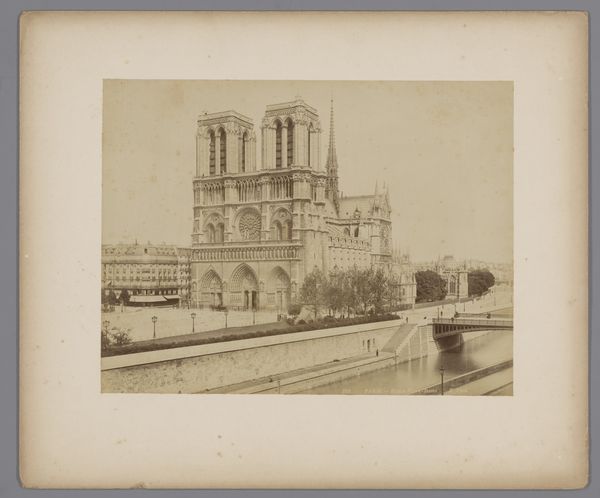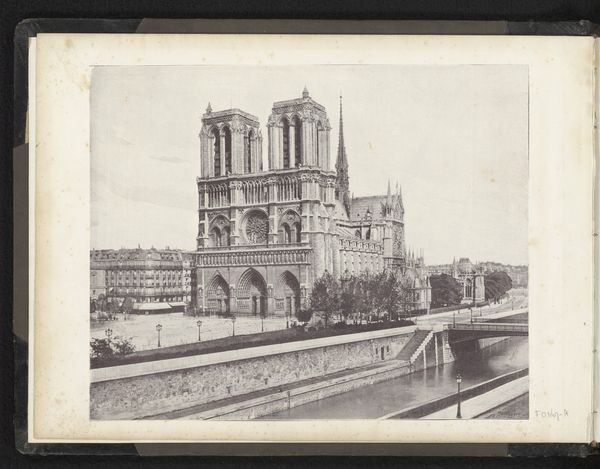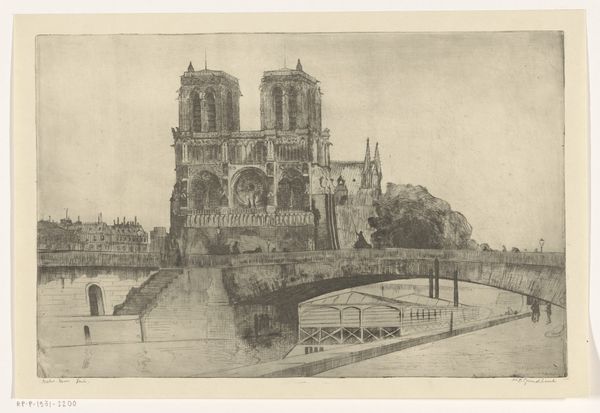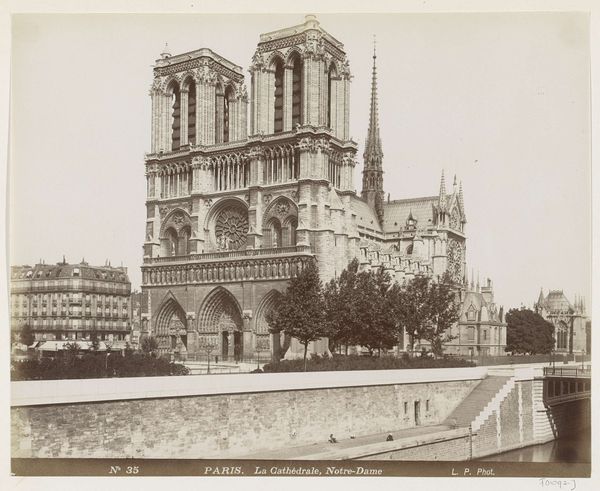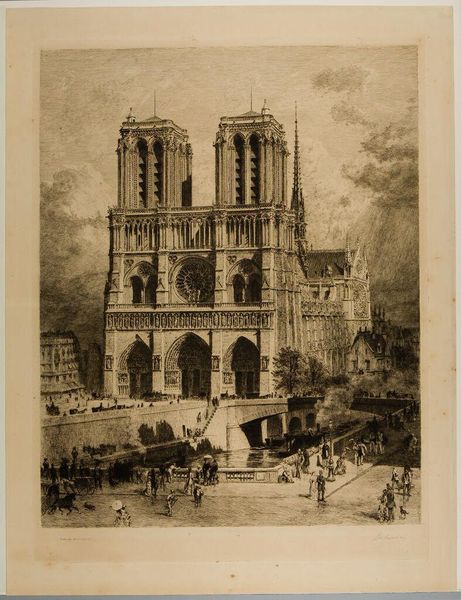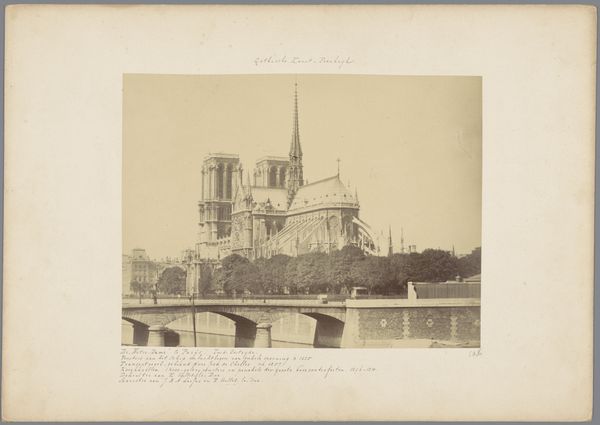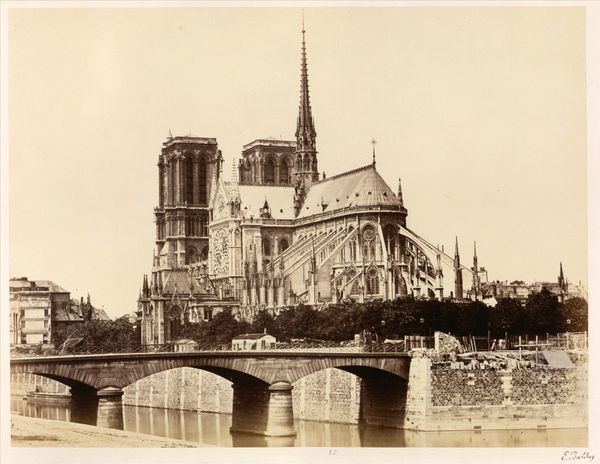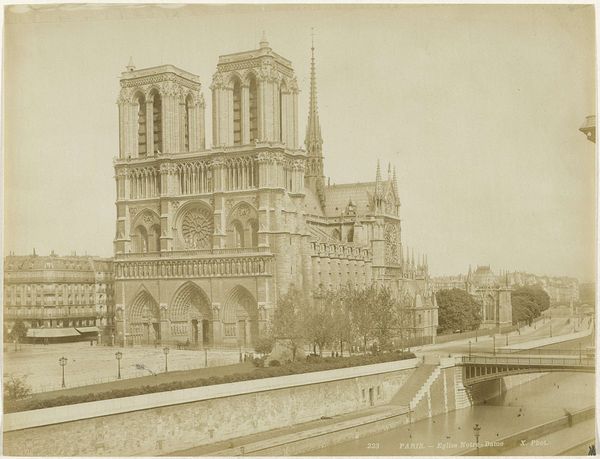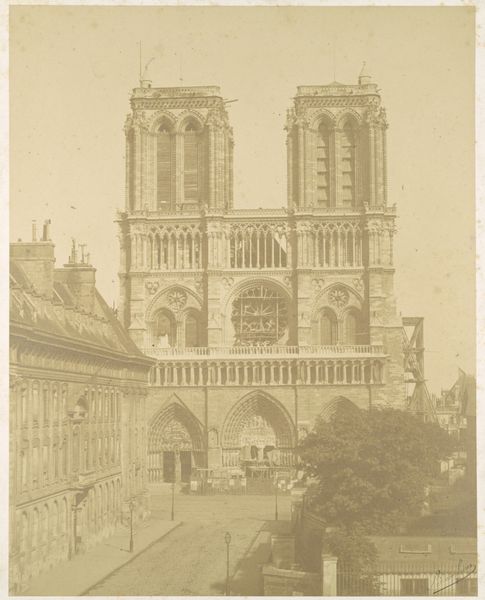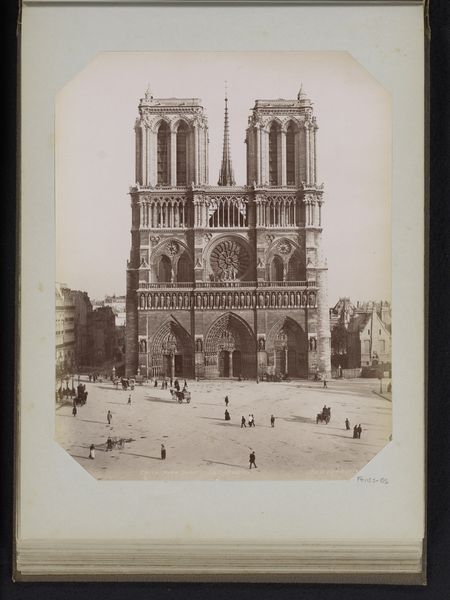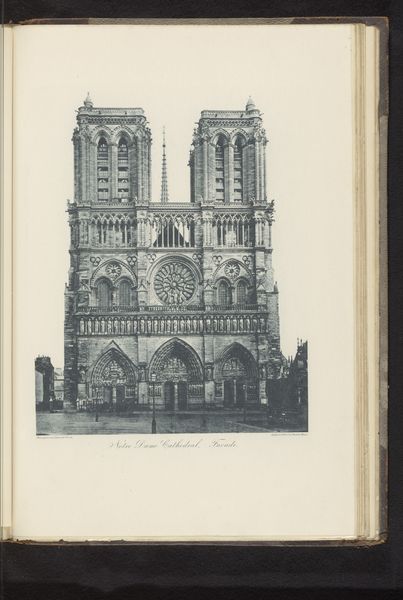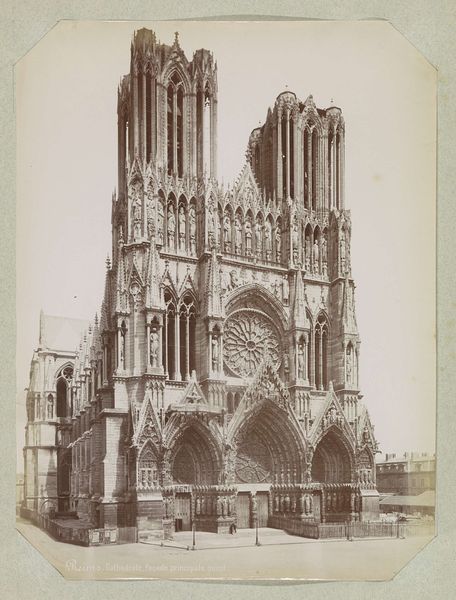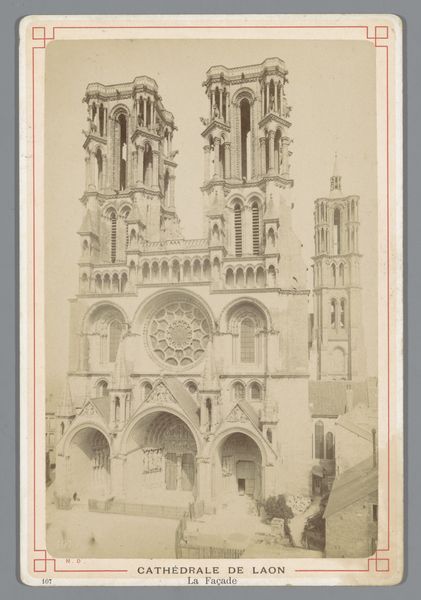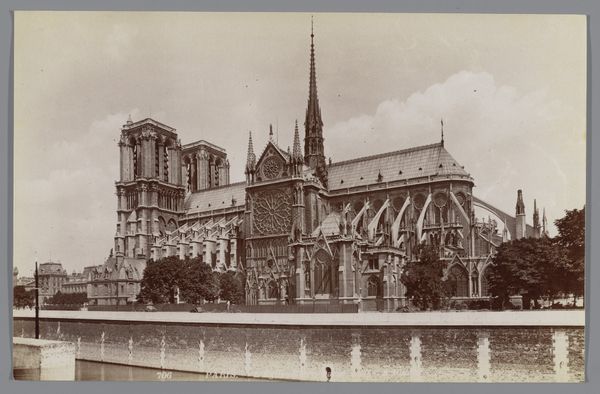
Dimensions: height 108 mm, width 164 mm
Copyright: Rijks Museum: Open Domain
This albumen print of the Notre-Dame in Paris was made by Ancienne Maison Martinet, a publishing and print firm active in the 19th century. The photograph's existence speaks volumes about 19th-century social and cultural dynamics. The image was produced during a period of rapid urbanization and technological advancement. Photography itself was a relatively new medium, and its accessibility allowed for the widespread distribution of images of landmarks like Notre-Dame. This commodification of imagery reflects a growing tourist industry and a desire to capture and share experiences. Institutions such as Maison Martinet played a crucial role in shaping the visual culture of the time, producing and distributing images that influenced perceptions of art, architecture, and place. The photograph captures the cathedral, of course, but the photographer orients the viewer from the embankment, reminding us of the importance of infrastructure projects to the modern experience of the city. To fully understand this photograph, we might consult archives of publishing firms, tourist ephemera, and urban planning documents. By examining these resources, we can gain a deeper appreciation for the social and cultural forces that shaped its creation and reception.
Comments
No comments
Be the first to comment and join the conversation on the ultimate creative platform.
